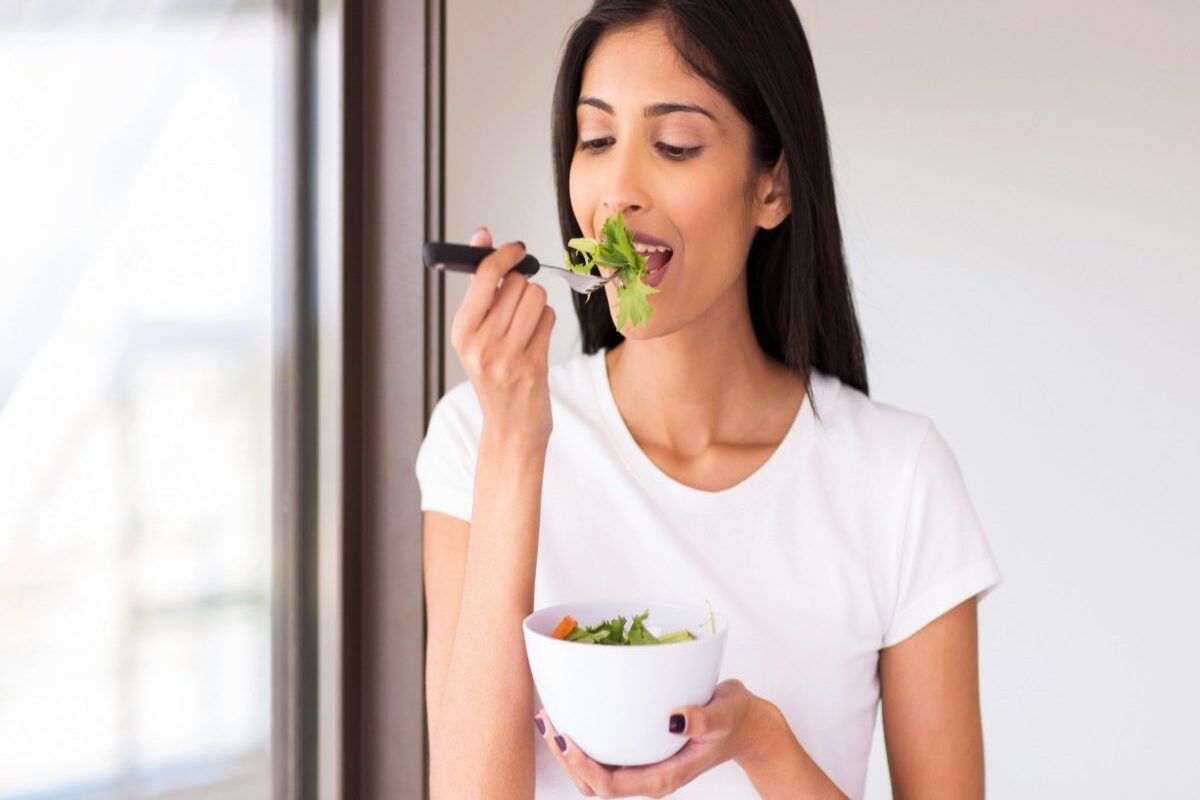Mandaviya underlines importance of preventive healthcare
Union Labour Minister Mansukh Mandaviya on Thursday emphasized the importance of preventive and promotive healthcare in building a healthy and fit India.
Caffeine can cause water retention and bloat. It can also exacerbate headaches. But caffeine withdrawal can cause headaches, too, so don’t cut out coffee completely if you’re used to having a few cups a day.

what-to-eat-during-periods (photo: stock)
Do you also feel extremely hungry, craving for something sweet a week or so before your menstruation date? Most women have craved a week ahead of their date, and we absolutely will eat anything tasty, we can lay our hands upon. Periods are one of the toughest phases of every month. Along with doing what we do every day, women also manage their menstruation days. Be it an on-field duty or sitting back in your cabin, menstruation days are hard for women from all walks of life. And, because periods are so messed up, we must eat healthily and take care of ourselves during this time.
During our menstruation days, craving is high, and hence that bottle of cold drink waiting in your refrigerator or that packet of chips in your kitchen should wait. Having the wrong foods during your periods can do more harm than you can think. From nausea to vomiting, these unfit foods may cause you unnecessary problems during your periods, hence best to avoid them.
Advertisement
Many women are unable to control their cravings which can be erratic and hard to shift, which means we’re tempted by more unhealthy options. However, if we find healthy alternatives to unhealthy snacks, you may solve your craving problems and also binge-eat your favorite food! So, if you had or are having a painful period you may want to look at your diet and make some changes.
Advertisement
Foods to avoid during periods:
1. Salt
Consuming lots of salt leads to water retention, which can result in bloating. To reduce bloating, don’t add salt to your foods and avoid highly processed foods that contain a lot of sodium.
2. Sugar
It’s OK to have sugar in moderation, but eating too much of it can cause a spike in energy followed by a crash. This can worsen your mood. If you tend to feel moody, depressed, or anxious during your period, watching your sugar intake can help regulate your mood.
3. Coffee
Caffeine can cause water retention and bloat. It can also exacerbate headaches. But caffeine withdrawal can cause headaches, too, so don’t cut out coffee completely if you’re used to having a few cups a day.
Coffee might also cause digestive issues. If you tend to get diarrhea during your period, reducing your coffee intake could stop this from happening.
4. Alcohol
Alcohol can have several negative effects on your body, which can exacerbate the symptoms of your period.
For example, alcohol can dehydrate you, which can worsen headaches and cause bloating. It can also lead to digestive issues, such as diarrhea and nausea.
Plus, a hangover can bring on some of the same symptoms that occur during your period, including:
5. Spicy foods
Many people find that spicy food upsets their stomachs, giving them diarrhea, stomach pain, and even nausea. If your stomach struggles to tolerate spicy foods or if you’re not used to eating them, it might be best to avoid them during your period.
6. Red meat
During your period, your body produces prostaglandins. These compounds help your uterus contract and get rid of the uterine lining, resulting in your menstrual flow. However, high levels of prostaglandins cause cramps.
Red meat may be high in iron, but it is also high in prostaglandins and should be avoided during menstruation.
7. Foods you don’t tolerate well
This might seem obvious, but it’s worth emphasizing: If you have food sensitivities, avoid those foods, especially during your period.
If you’re lactose intolerant, you might occasionally treat yourself to a milkshake, regardless. But during your period, it’s especially important to avoid the foods that can trigger issues in your body.
Eating these foods can cause nausea, constipation, or diarrhea, which will only add to your discomfort when you’re having a painful period.
Advertisement